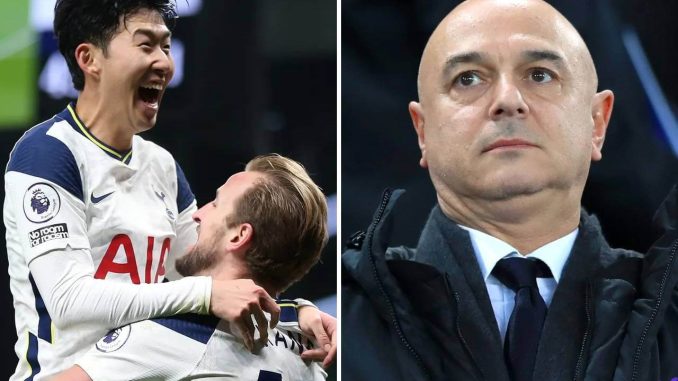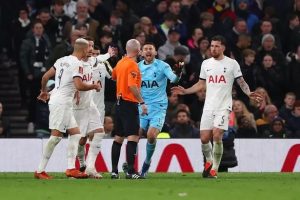
The reasons why Tottenham and Daniel Levy have yet to finalize their hunt for new equity investment are becoming increasingly evident
Spurs officially indicated that they were open to a takeover earlier this year, with chairman and co-owner Levy employing language that allowed for either majority or minority investment.
Former Newcastle United chief Amanda Staveley’s PCP Capital Partners, which funded £500 million for a new football acquisition, has been connected with an investment in Tottenham.

Liberty Media, the owners of Formula One, and MSP Sports Capital, who recently failed in a bid to buy Everton, had previously expressed interest.
However, there have been almost no solid reports indicating that any investment is imminent; experts believe this is due to Tottenham’s £3.75 billion valuation being too high.
Furthermore, Spurs have been on the market for several years. The announcement in April just verified what was previously well known in the business.
Levy and ENIC’s management of Spurs during the previous two decades has been divisive among fans, but from a business standpoint, they are regarded as one of the finest run clubs in the world.
So, why has the hierarchy been unable to close any type of deal?
Cost control is a big barrier to Spurs takeover.
In recent years, US private equity funds have increased their influence on football by investing heavily in the Premier League and elsewhere.
However, in the first significant update in the investment crisis in months, it was revealed last week that private equity’s interest in clubs such as Spurs is dwindling.

There are several elements at play here, but arguably the most important is the idea that cost management in the Premier League is virtually non-existent.
Spurs are in the minority when it comes to spending within their means.
Clubs are increasingly spending as much as they can while adhering to expenditure limits. That means that profitability is plummeting across the division. Not suitable for investors.
In a second development that exemplifies this tendency, FIFA reported that about £5 billion was spent on foreign transfers this summer, the second highest total of all time.
Unsurprisingly, the Premier League was by far the most important individual driver, albeit a somewhat poor year by its own luxurious standards.
The last thing potential investors want from a club like Spurs is to engage in an arms race. That is why the NFL and NBA, where expenditures are largely fixed and predictable, are more appealing.
Champions League change might pump life into Tottenham’s sale.
The US investors who own more than half of the Premier League’s clubs are relying on a large revenue boom.
Otherwise, teams will continue to lose money, leaving owners with no way to recoup their losses.
The European Super League had previously served as a solution for clubs such as Tottenham.
That would have transformed the North London club’s income overnight, but the massive fan outcry, along with rising legislative difficulties, makes that nearly impossible at the moment.

FIFA has claimed that the expanded Club World Cup will generate earnings of more than £35 million per season, although Spurs will only see intermittent financial benefits due to the qualifying rules.
However, the Champions League has permanently switched to an enlarged model, which UEFA believes would generate 25% more revenue for elite clubs each year.
Spurs did not compete in the first edition of the restructured tournament in 2024-25, but they expect to be regulars in the future.
As many as six Premier League clubs could qualify for the Champions League in the next years, investors may regard these nearly assured income as the golden goose when it comes to investing in Tottenham.
Leave a Reply